By James Todd

Near the end of a seminar on science and theology, Sr. Damien Marie Savino, a Franciscan Sister of the Eucharist, was sautéing vegetables in a large saucepan as students in the seminar prepped a fish entrée and blackberry cobbler dessert. The meal they were about to serve at the Duke Catholic Center’s Falcone-Arena House would be the culmination of a week of discussion, touring, and hands-on work delving into the relationship between faith and science. The dinner put into action principles from the seminar, using organic vegetables the group harvested from the Duke Campus Farm and challenging the students—young professionals and graduate students from four countries and disciplines ranging from material sciences and statistics to bioethics and theology—to collaborate across their various cultural backgrounds.
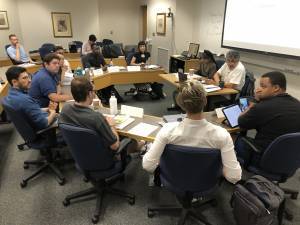
“One big topic of the seminar was this idea of the technocratic paradigm—a technocracy that's obviating the human person,” said Savino, who is the dean of science and sustainability at Aquinas College in Grand Rapids, Michigan. “What was very edifying for me was to hear the students longing for the proper anthropology, the proper view of who they are and who humanity is in the face of the pressures of technology.”
Savino and Duke Divinity School Professor of Theology Peter Casarella led the Theology and Engineering/Science Seminar for 10 graduate students and young professionals from June 26 to 30 at Duke University. It was presented through the In Lumine Network, which brings the Catholic intellectual tradition into dialogue with disciplines such as theology, philosophy, and the natural and social sciences. The network was funded by a grant from the John Templeton Foundation.
The seminar drew upon a range of thinkers from Pope Francis and the twentieth-century theologian Romano Guardini to Savino and Norman Wirzba, Gilbert T. Rowe Distinguished Professor of Christian Theology at Duke Divinity. In addition to the classroom discussion and shared meals, the group worked at the Duke Campus Farm and toured the Spirit in the Land exhibition at the Nasher Museum of Art. Wirzba and Dr. Linda Coley, executive directer of the Ormond Center, were guest speakers during discussion sessions. Fr. Chukwuebuka Emmanuel Madu, a participant in the seminar and a graduate student at Loyola University Chicago, celebrated Mass each day.
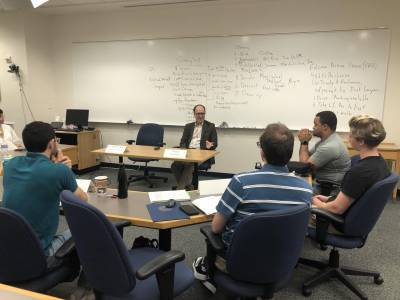
“There was a nearly unanimous opinion coming out of the group that you had to respond to the climate crisis and the uncritical assumption of a pessimist view of humanity that often accompanies it with a view that puts them in a different perspective,” said Casarella, “not circumventing the certainty of a crisis, but like we find in [Pope Francis’] Laudato si', opening up the horizon of the kingdom that Christ preached and beginning to think in that light about the very urgent, pressing and socially relevant challenges we face.”
During lunch on the final day of the seminar, the students held an informal discussion with Dr. Stephanie Holmer, an instructor in Duke’s biology department and campus minister with InterVarsity, and the Rev. Dr. Edgardo Colón-Emeric, dean of Duke Divinity School. Colón-Emeric queried the group about their experiences of the seminar.
“I want my future to be involved in medicine and public health, and I had been told that faith was a really important thing to have in that area because of the difficulties—the sickness, the death,” said Marisabel Sanchez, who is conducting public health research at Notre Dame and plans to enroll in medical school. “This seminar has given me the language to fully express my faith and spirituality in a more scientific setting.”
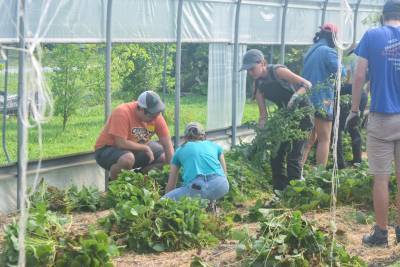
Another student, Timothy Burley, is a software engineer at IBM in Durham.
“Computers are getting more powerful, and I have all of these different devices, and I'm very inclined to automate everything in my life,” Burley said. “And now having a word or a concept to identify this thing that's happening to me, it gives me a much better approach for integrating my faith into my work.”
Cristina van Werkhoven, a student at Duke Divinity School, said she appreciated being able to speak in theological terms with students with scientific backgrounds.
“This seminar for me has just been really great for the community aspect of getting to know people from the science side who care about these things and are willing to spend their week thinking carefully and theologically,” van Werkhoven said. “Since I focus on theology, which is the abstraction instead of the particulars of the fields that they're working in, I found it very encouraging, very fruitful for understanding a little bit more about how, practically, good can be done.”
Savino, who lives on a farm with fellow Franciscan Sisters of the Eucharist, said she was encouraged by the students’ responses.
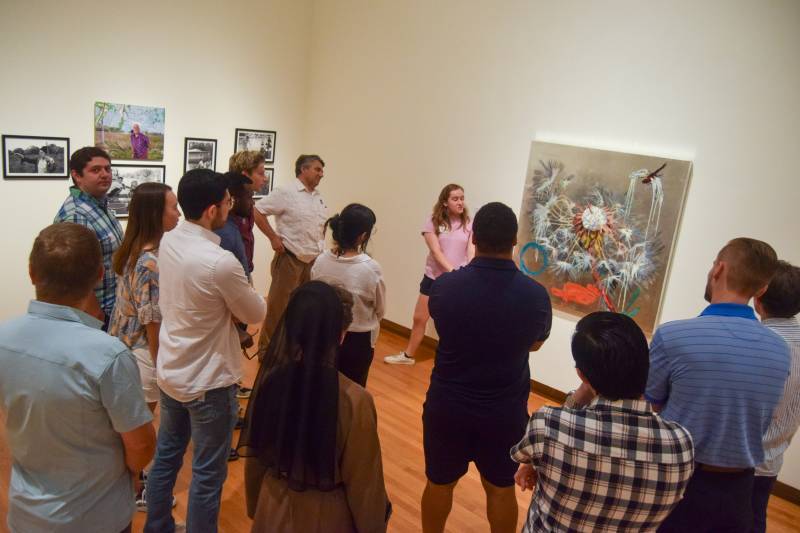
“The students now at the end commented on the amount of hope they felt—both those who are science people and those who are theology people,” she said. “The openness and respect and trust of people across their disciplines, across their cultures—that was pretty profound to see how easily they interrelated.”
Casarella, who is organizing a center at Duke to be part of the In Lumine Network, said the seminar is meant to be part of an ongoing effort to bring Catholic thought and spirituality to bear on shared challenges in life.
“We are not trying to give people everything they need to know about religion and science in one week—that's crazy,” he said. “We're trying to pique interest and, in the kind of Jesuit fashion, embark on a discernment of spirits about where you want to go in light of following the standard of Christ.”
“If we can get people moving in a new direction, or accelerate their movement in that direction, that comes through a process of spiritual discernment—all for the good,” he said.
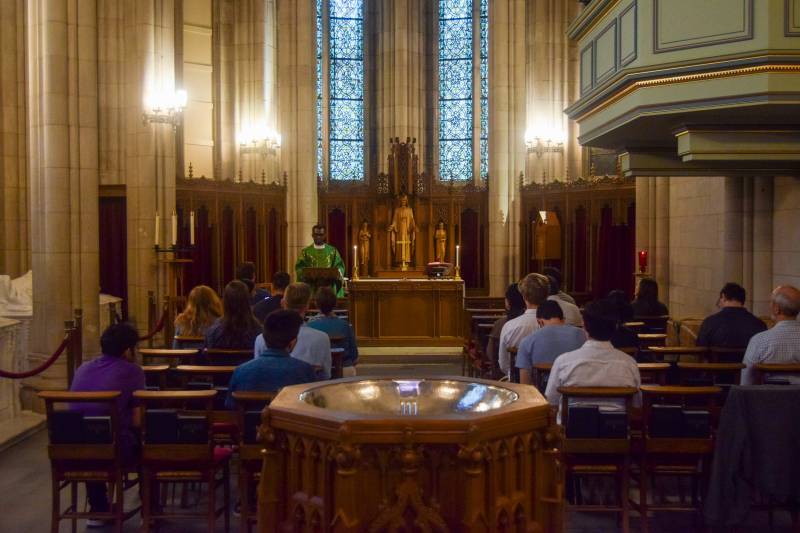
The seminar was made possible through the support of grant #62372 from the John Templeton Foundation, “In Lumine: Promoting the Catholic Intellectual Tradition on Campuses Nationwide.”